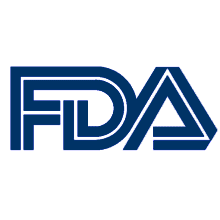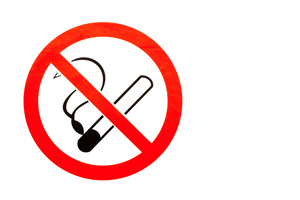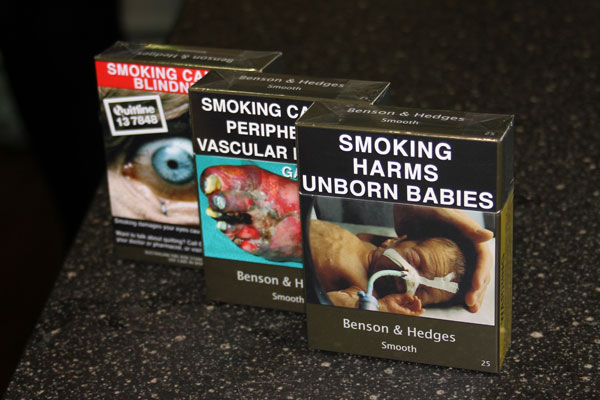The University of Newcastle (UON), Australia, has announced that it is reversing its whole-campus ban on smoking and vaping, according to a story at planetofthevapes.co.uk.
‘UON is dedicated to providing a safe and healthy environment for staff, students and visitors to our campuses,’ the university was reported to have said in a written statement. ‘We are proud to support a smoke-free experience.
‘From September 2018, designated smoking areas have been introduced at three locations on our Ourimbah campus and at eight locations across the Callaghan campus…’
Instead of a total ban on smoking and vaping, albeit that vaping suffers a de facto ban across the whole of Australia, nicotine users can now use the shelters provided.
Nat McGregor, UON’s CEO said the decision made by the university’s executive committee had not been taken lightly. “The health and safety of our campus environments is a priority that can only be achieved through the responsible behaviour of all,” he said
“Unfortunately, we have clear evidence that our smoking restrictions were being ignored in enough volume to cause real concern. Our smoke-free initiative resulted in people smoking in areas that are not appropriately cleared, increasing the risk of fire, as well as causing pollution to our wetlands from discarded cigarette butts. After an extremely dry winter, the risk of bushfire is heightened this year, and appropriate action was needed to safeguard our community.”
The planetofthevapes report said it was to be hoped that the decision would feed into a more enlightened stance on alternative cessation products.
Currently, the UON’s website advice to vapers is that there is no convincing scientific evidence to indicate that any alternative quit smoking method increased the chances of quitting smoking. Moreover, it warns that vaping won’t work, will be expensive, and carries ‘significant health risks’.
The advice for smokers is that they should use their willpower or make use of counselling and nicotine replacement therapy.
Category: Regulation

University learns a lesson

FDA to review risk claim
U.S. Smokeless Tobacco Company said on Friday that the Food and Drug Administration had accepted and filed for substantive scientific review a Modified Risk Tobacco Product application for its moist smokeless tobacco product Copenhagen® Snuff Fine Cut.
The application requests FDA authorization to make one claim: ‘IF YOU SMOKE CONSIDER THIS: Switching completely to this product from cigarettes reduces risk of lung cancer’.
“It’s critical that smokers have accurate, non-misleading health information about different tobacco products,” said Joe Murillo, senior vice president, regulatory affairs at Altria Client Services.
“We filed this application because we think adult smokers looking for potential reduced risk alternatives to cigarettes should have accurate information about the relative risks of Copenhagen Snuff.”
The Agency is due to begin a substantive scientific review process, which includes opportunities for public comment.
We'll ‘work with FDA’
The Imperial Brands subsidiary, Fontem Ventures, has said that it is ready to work with the FDA to further strengthen its ‘youth access prevention policies and procedures’.
The company was responding to a statement from the US Food and Drug Administration issued on Wednesday in which it gave electronic-cigarette manufacturers accounting for 97 percent of the US market 60 days to submit plans describing how they intend to address what the FDA sees as the widespread use of their products by young people.
Fontem Ventures said it strongly believed that e-vapor products such as blu and myblu™ were to be used only by adult smokers. ‘Minors should not use any tobacco or nicotine products, and we fully support and advocate for both legislation prohibiting sales of vaping products to minors and the ongoing FDA enforcement action against retailers selling e-vapor and other tobacco products to minors,’ the company said in a statement posted on its website on September 13.
‘We are evaluating today’s [Wednesday’s] request and statement from the FDA. On youth access, we have common aims. We welcome the opportunity to demonstrate, and work with the FDA to further strengthen, our youth access prevention policies and procedures. We will continue to work with regulators in the US and elsewhere to implement best practices in all our commercial activities.
‘Since 2009, blu has marketed e-vapor products to adult smokers in the US and around the world in a responsible manner. While youth smoking rates and use of combustible tobacco products have declined in the US, in line with trends in adult use, we fully understand and share current public concern about youth use of e-vapor products.’
Fontem Ventures said that marketing and advertising standards for blu ensured all communications were intended for, and presented to, adult audiences only. ‘We also take proactive measures to ensure responsible sales practices, both on our own online storefront and through third-party online and brick-and-mortar retail locations:- ‘We conduct a thorough online age verification process via third party vendors Veratad and Experian, in addition to mandatory manual ID checks for anyone with a date of birth that shows them to be under 27.
- ‘We monitor all transactions for evidence of fraudulent activity, unauthorized wholesaling, or sales by proxy where products could potentially reach non-adult users.
- ‘We require a commitment from vape store partners to prohibit underage access.
- ‘We require retail partners’ compliance with all applicable local, state, and federal laws.
- ‘We conduct post-market surveillance to flag any concerning demographic trends.’
Fontem Ventures said it looked forward to working with FDA to address this critical issue.

Don't smoke, chew or spray
New tough penalties have been proposed in Papua New Guinea for people who chew betel nut, smoke tobacco or spray paint in public places, according to a story in The National.
Offenders would incur fines of up to $US3,000 and jail terms of up to three years under a bill tabled in parliament on Wednesday.
Prime Minister Peter O’Neill tabled the Summary Offences (Amendment) Bill, saying it was about “public health and wellbeing”.
The bill covers all vehicles, government offices or private buildings that allow access to the public.
Not all of the bill, as reported, seemed to make sense. In part, it was said to be aimed at ‘banning smoking and the illegal trade of tobacco in public places’, which would raise a few questions.
Debate on the bill is expected to start when Parliament resumes sitting on November 6.
If it's called a cigarette…
Five bills that have been put before Ukraine’s Verkhovna Rada, or parliament, equate electronic cigarettes with conventional cigarettes, according to an Interfax Ukraine story.
Under the bills, e-cigarettes will be included in the list of tobacco products, and e-liquids will be included in the list of excisable cigarettes.
The bills ban the sponsorship, advertising and promotion of e-cigarettes and non-combusted cigarettes, as is the case with conventional tobacco products.
The bills also propose banning the production and sale of tobacco products ‘containing ammonia, ammonium and urea or a combination of them’.
Interference index launched
A health advocacy group in the Philippines is pushing for stronger tobacco control policies, according to a story by The Philippine News Agency.
“As signatory to the [World Health Organization’s] Framework Convention on Tobacco Control, we have to have policies on tobacco control, but there are attempts or strategies that the tobacco industry uses to delay the passage of policies or rush them to avoid proper deliberation,” the MD of Health Justice Philippines (HJP) Jak Sarita was quoted as saying.
The HJP, which was described as an advocacy group with legal expertise in tobacco control and public health promotion, on Friday launched the Tobacco Industry Interference Index Philippine Report 2018.
The report was said to have revealed how tobacco companies were able to participate in and exert influence on public health policy development and implementation.
And it was said to have shown that stricter policies than those already imposed had to be passed. These included the imposition of higher taxes on tobacco, a ban on tobacco advertisements, and the removal of tobacco-industry influence from policy implementation.
The report recommended that the government provided information about its meetings and interactions with the tobacco industry.
Sarita said the report could teach stakeholders how to counter the tobacco industry’s interference while creating a well-informed public who could actively participate in campaigns on tobacco control and public health promotion.
Let's be reasonable
Restaurant owners in Malaysia want to be able to reserve a few tables for customers who smoke, while anti-smoking groups want more-aggressive anti-tobacco measures in the wake of the Health Ministry’s announcement that it intends to gazette all open-air restaurants as no-smoking areas from December, according to a story by Loh Foon Fong for The Star.
The Malaysian Muslim Restaurant Owners Association president Ayoob Khan Muhamad Yakub, said smoking was bad, but, he added, restaurant owners could not chase away customers who wanted to smoke.
“The government should allow restaurant owners to have a few tables allocated for smokers, away from the other tables,” he said.
Ayoob hoped the ministry would consult municipal councils and the public on how the new regulations could be implemented.
Meanwhile, the National Cancer Society of Malaysia’s PR and communications assistant manager Mandy Thoo said 80 percent of Malaysians were non-smokers.
“Our cancer awareness programs and support activities for cancer patients and survivors reveal that many people have had enough of being exposed to second-hand smoke in public areas,” she said.
The society urged the government to adopt and implement a Tobacco Control Act.
Meanwhile, the secretary-general of the Federation of Malaysian Consumers Associations’ (FOMCA) Malaysian Council for Tobacco Control (MCTC), Muhammad Sha’ani Abdullah, said the National Strategic Plan on Tobacco Control listed non-air-conditioned restaurants as the next target to be made non-smoking areas this year.
FOMCA urged the government to be more aggressive in promoting tobacco control measures because, it said, the country had not made much progress during the past 30 years, during which time smoking prevalence had been hovering between 21 percent and 23 percent.
Standardized packs on way
Belgium is to introduce standardized tobacco packaging, according to a story in The Brussels Times quoting the Federal Minister for Public Health Maggie De Block.
The minister, who announced the plan a matter of weeks ago, was said to have received ‘rapid agreement’ from government colleagues.
The story suggested the new packaging would reflect that first introduced in Australia, with huge health warnings and minimal branding beyond the brand name.
No other details were given.
Quitting by default
Changing the way tobacco is retailed would be a crucial step in achieving the New Zealand Government’s 2025 smoke-free goal, new research by the University of Otago suggests.
If the Government prevented new retail outlets from selling tobacco, while allowing existing retailers to continue selling tobacco until they closed or relocated, it could achieve a 50 percent reduction in tobacco outlets by 2032, the research, just published in the medical journal Tobacco Control, is said to have shown.
One of the study’s authors, co-director of the Cancer Society Social and Behavioural Research Unit at the university’s Department of Preventive and Social Medicine, Dr. Louise Marsh, said achieving this reduction would “likely help lower smoking prevalence and health inequities”.
“This approach would not achieve New Zealand’s endgame goal of reducing tobacco availability to minimal levels by 2025, nor the sector’s target of a 95 percent reduction in outlet density by 2022, but would nonetheless result in a significant advancement from the status quo,” she was quoted as saying in a piece posted on the university’s website.
Decreasing the number of outlets that stock tobacco would help reduce youth smoking initiation and enable smokers to quit ‘more easily’, Marsh and her colleague, Dr. Lindsay Robertson, formerly from the Department of Preventive and Social Medicine, concluded.
The researchers examined the impact of a hypothetical policy that, from 2020, banned new retail outlets from selling tobacco. Under the policy, existing retailers would be allowed to continue selling tobacco until they closed their outlets or moved to a different location, when they could no longer sell from the new location.
The study used Stats NZ data on the number of tobacco outlets between 2006 and 2016 (supermarkets, convenience stores, service stations and liquor stores only), and the rate at which these stores closed or relocated.
Based on mean annual closure rates, the total number of tobacco outlets would decrease by 27 percent by 2025, 50 percent by 2032 and 84 percent by 2050.
No room for smoking
In three months’ time, smokers will not be able to light up when dining al fresco at restaurants Malaysia-wide, according to a story at The Coverage quoting other media outlets.
The Health Ministry has reportedly said that all open-air restaurants will be gazetted as non-smoking areas from December.
The Health Ministry has reportedly said that all open-air restaurants will be gazetted as non-smoking areas from December.
“This gazettement is Malaysia’s commitment as a member state to the Framework Convention on Tobacco Control and adheres to the guidelines under Article 8 of the World Health Organization,” the deputy health minister Dr. Lee Boon Chye was quoted as saying.
“It is also one of the ministry’s initiatives to protect the public from the dangers of cigarette smoke.”
Those found to have broken the law on smoking could be fined RM10,000 or sent to jail for up to two years.
Lee was reported to have proposed also closing the parliament’s smoking-room next month in a bid to turn the entire law-making house into a smoke-free zone.
He said there were currently 23 areas designated smoke-free under the Control of Tobacco Product (Amendment) Regulations 2017.These included entertainment centers, theaters, elevators, public toilets, air-conditioned eateries, public vehicles, airports, government premises and any area used for assembly.









